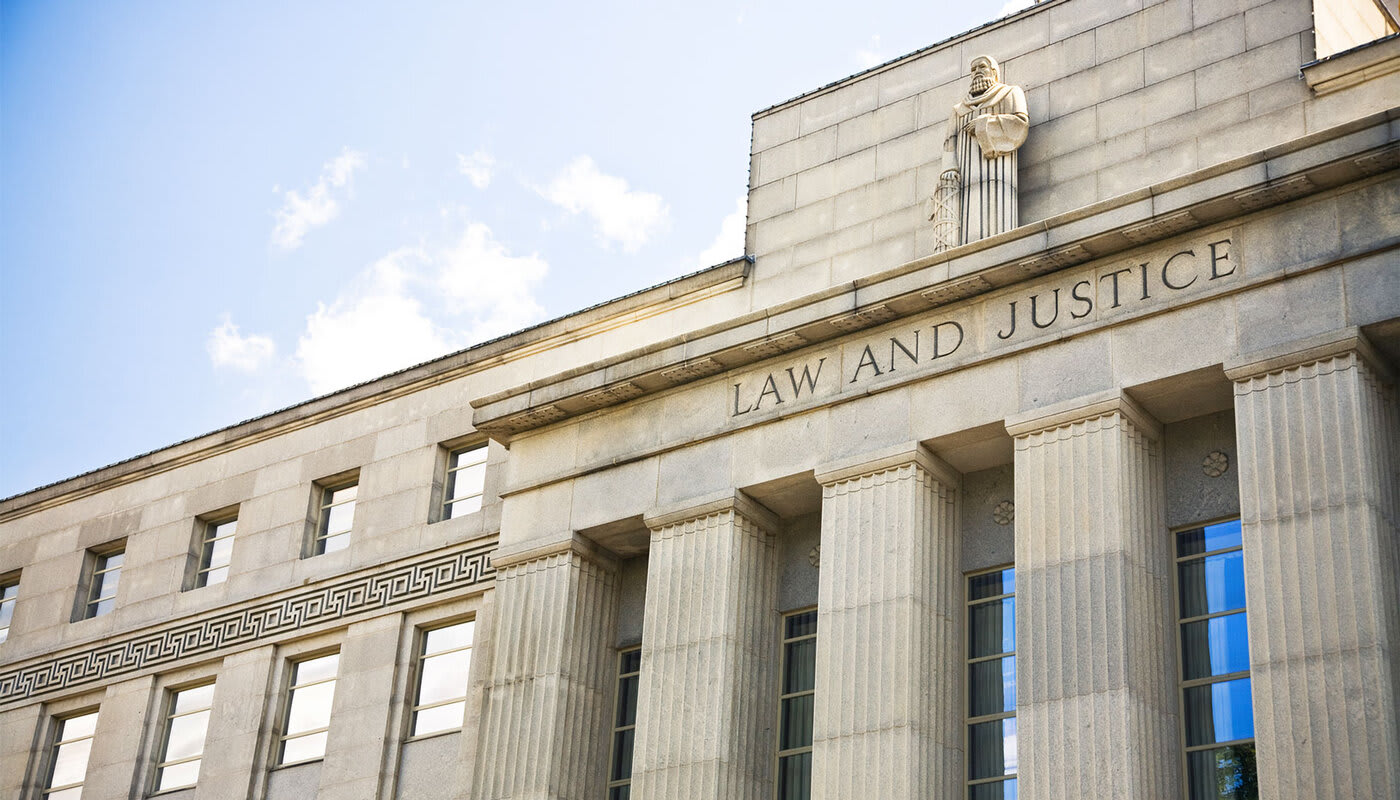State Court Report: Stare decisis in the spotlight
North Carolina’s high court to rehear two recently decided democracy cases.
Welcome to the February issue of the State Court Report newsletter.
Earlier this month, the North Carolina Supreme Court granted petitions to rehear two high-profile democracy cases decided by the court last year: Holmes v. Moore, which struck down a voter ID law as intentionally discriminatory (see my colleague Robyn Sander’s recent piece on the case), and Harper v. Hall, which struck down the state’s congressional and legislative maps as partisan gerrymanders. The court, which has a new conservative majority after last November’s judicial elections, relied on a rarely used procedural rule that allows for rehearing a case when the court has “overlooked or misapprehended” points of law or fact.
Much of the coverage of the court’s rulings has focused on their implications for Moore v. Harper, the case in which the North Carolina congressional map is being challenged before the U.S. Supreme Court as the Court weighs the validity of the so-called “independent state legislature theory. (The truth is we don’t know yet what these rulings mean for Moore: it depends on exactly what the North Carolina Supreme Court and U.S. Supreme Court do, and when they do it.)
But the decision to rehear these cases also raises important questions about respect for precedent (often called stare decisis), especially for states like North Carolina where court majorities could regularly flip back and forth as a result of judicial elections.
Stare decisis (Latin for “to stand by things decided”) is an important restraint on judges. It ensures stability in the law and promotes the public legitimacy of courts by binding judges to follow principles separate from their personal proclivities.
But the virtue of stare decisis has its limits. No one argues that courts should never reverse themselves. The U.S. Supreme Court should have overturned its 1944 decision in Korematsu v. U.S. — which authorized the internment of Japanese Americans during World War II — the very next day. That would have been a victory for the rule of law, not a failure.
The thorny question is how to define stare decisis as an operative value, so it’s not just something that we celebrate when we like a precedent and disregard when we don’t. The U.S. Supreme Court has laid out factors for the federal courts to consider, most famously in Casey v. Planned Parenthood, when the Court declined to overturn Roe v. Wade back in 1992. But Dobbs v. Jackson Women’s Health, of course, casts a long shadow here, and justices like Clarence Thomas have expressed skepticism that stare decisis should be much of a restraint at all.
I can’t give a full answer in the space of a newsletter (sorry!), but I want to share a few thoughts on North Carolina. First, if a court is going to do something radical on substance — like reversing a precedent — it ought to be decidedly un-radical in process. That’s not the case in North Carolina, where the court is relying on a barely used rule intended to correct mistakes, not give litigants a second bite at the apple every time there’s a personnel change on the court.
The substance of the precedent at issue must also be part of the analysis. In our constitutional system, courts play a key role in protecting rights and democratic values. Decisions that roll back rights or make it harder for people to fully participate in the political process, which the North Carolina Supreme Court seems poised to do here, deserve extra scrutiny.
Stare decisis also raises issues unique to state courts, and here I’ll pose questions, not answers. Thirty-eight states, including North Carolina, use elections as part of their system for choosing high court judges, and Rhode Island is the only state in the country where judges enjoy life tenure without a retirement age. As a result, we can expect to see a lot more volatility in state courts, as compared to their federal counterparts, in response to political changes. What does that mean for stare decisis? Is it even more important than in the federal courts, to ensure stability in the law and public confidence that elected judges aren’t just politicians in robes? Or are there instances where elections should be seen as providing a mandate to revisit prior rulings, and, if so, under what circumstances?
As you can probably guess, these questions aren’t limited to North Carolina. Earlier this month, for example, the South Carolina Supreme Court denied a motion to reconsider its ruling striking down an abortion ban after the author of the lead opinion retired and was replaced by a new justice. In Wisconsin, which just held a supreme court primary yesterday, conservatives could potentially lose their majority after the April general election — a result that would almost certainly prompt calls for that court to revisit its rulings on redistricting and other high-stakes issues. In these and other states, look for debates about the meaning and scope of stare decisis to loom large.
Why There’s No “Best” Tool for Interpreting State Constitutions
Appellate Court of Maryland Judge Dan Friedman writes about his experience using different theories of constitutional interpretation to analyze Maryland’s constitution. “Interpretive theories are not in competition with one another,” he writes. “They are not to be used to the exclusion of the other theories. Rather, they are tools, each with a different function, that are to be used together.” READ MORE
“Unnecessary Rigor” Clauses Show Promise in Protecting Prisoners’ Rights
Five state constitutions have provisions protecting incarcerated people from being treated with “unnecessary rigor.” Kathrina Szymborski Wolfkot, an appellate attorney at the MacArthur Justice Center, analyzes how these clauses have been interpreted in Utah and Oregon to offer greater protection than federal law. She writes, “Against this bleak federal prison litigation landscape, state constitutions offer a glimmer of hope — and ‘unnecessary rigor’ clauses glow particularly brightly.” READ MORE
Getting Comparative Law Right in State Courts
State courts have a long history of engaging in comparative law analysis. Professor Martha Davis from Northeastern University School of Law discusses the consequences of the Supreme Court’s ruling in Dobbs, which she argues used a flawed approach to comparative law. “There are key questions about what lessons state courts will take from Dobbs’s comparative analysis,” she writes, “and whether state court judges will continue to use comparative law with appropriate rigor.” READ MORE
Fights Remain After Landmark Educational Funding Decision in North Carolina
Last fall, after decades of litigation over education rights, the North Carolina Supreme Court ordered the state legislature to transfer hundreds of thousands of dollars to state education agencies. Michael Milov-Cordoba discusses what may come next given the court’s new majority. “All told, the ongoing funding fight in North Carolina illustrates both the potential for state constitutions to advance equity in public education and the political challenges of vindicating state constitutional rights that require government expenditures.” READ MORE
What Else We’re Reading (and Listening To)
Kate Zernike writes for the New York Times about the use of state constitutions in the battle over abortion rights.
On the Lady Justice podcast, Justice Rhonda Wood of Arkansas, former Chief Justice Bridget McCormack of Michigan, and Chief Justice Beth Walker of West Virginia discuss state courts.
Notable Cases
Cameron v. EMW Women’s Surgical Center, Kentucky Supreme Court
Rejected a temporary injunction against Kentucky’s trigger and heartbeat abortion bans, but did not determine whether the Kentucky Constitution protects abortion rights. Read more in Politico.
Charles Ferry v. City of Montpelier, Vermont Supreme Court
Ruled that a statute allowing noncitizens to vote in local elections in the City of Montpelier does not violate the state constitution’s voter-eligibility requirements. Read more in the VT Digger.
William Penn School District v. Pennsylvania Department of Education, Commonwealth Court of Pennsylvania
Found that Pennsylvania’s school funding system violates the state constitution’s education and equal protection clauses and required the state to devise a plan to address the system’s constitutional deficiencies. Read more in the Pennsylvania Capital Star.
Washington Food Industry Association v. City of Seattle, Washington Supreme Court
Reviewing a Seattle law granting hazard pay to food delivery workers during the pandemic, dismissed statutory, equal protection, and privileges and immunities claims, but allowed takings, contract clause, and police powers claims to move forward. Read more in Bloomberg Law.
Jennifer L. David v. State of Missouri, Circuit Court of Cole County
Ruled that Missouri’s waiting list statute for indigent defense violated the state constitution to the extent a defendant facing incarceration must wait longer than two weeks or lacks assistance at an earlier critical stage such as a bail or bond hearing. Read more in the Missouri Independent.
State of New Jersey v. William Scott, Superior Court of New Jersey
Found that equal protection under the state and federal constitution requires suppression of evidence found in a police search when the search was based on racial discrimination by the police dispatcher reflecting implicit bias. Read more on Law.com.
Image: NickS/Getty





